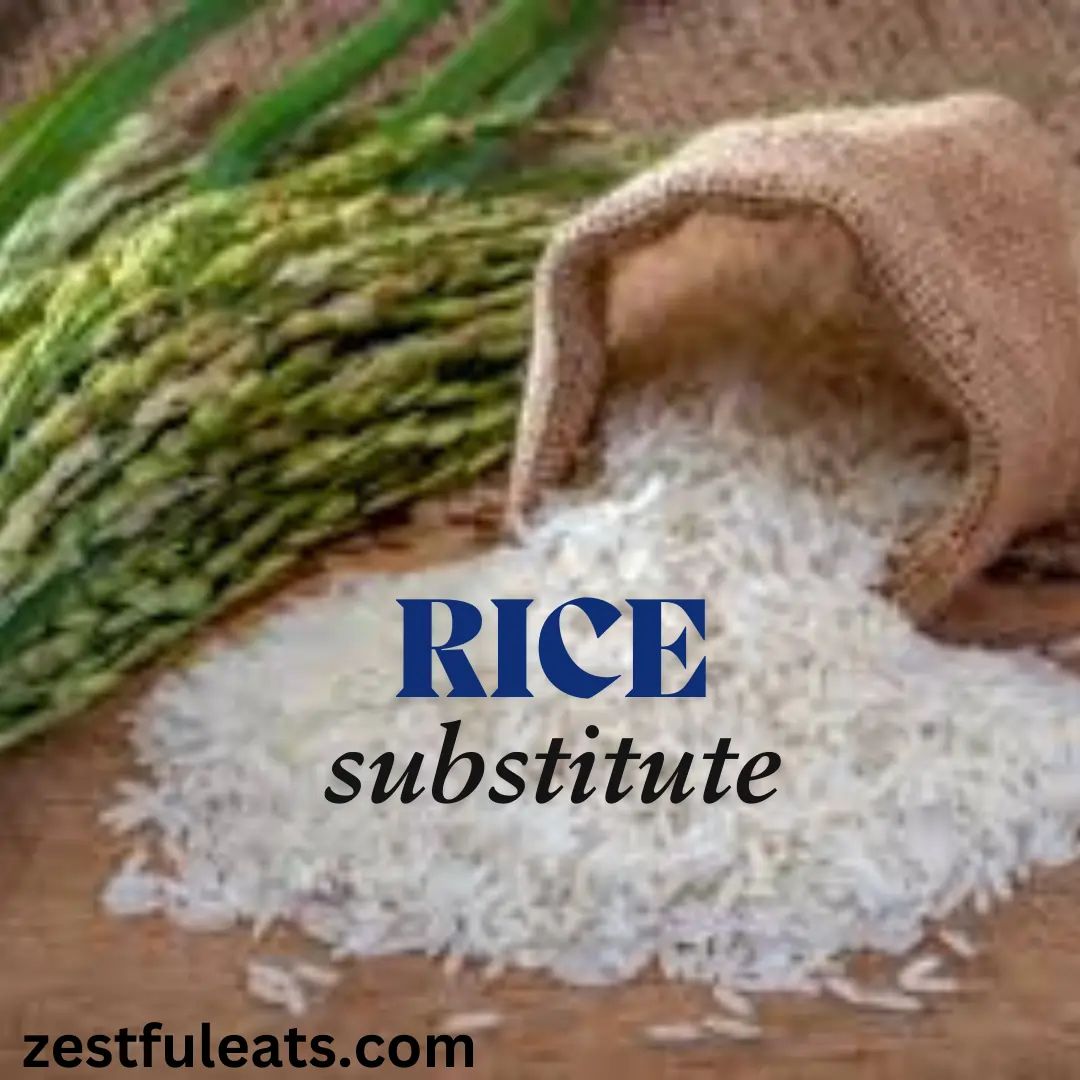Introduction
Rice is a staple food globally, known for its versatility, health benefits, and affordability. It is primarily a rich source of carbohydrates, providing essential energy, fueling physical activities, and promoting fullness and satisfaction.

Why Consider Alternatives?
Despite its benefits, some individuals might need or prefer to explore other options due to reasons such as allergies, a desire to reduce carbohydrate or calorie intake, or the aim to diversify their consumption of whole grains.
Affordable and Nutritious Substitutes
For those looking to replace rice, there are several nutritious, tasty, and easy-to-prepare alternatives at home. These include barley, riced broccoli, and orzo, offering diverse flavors and health benefits while maintaining a similar texture and culinary flexibility as rice.
Overview of Barley
Barley is a versatile grain available in various forms such as whole, pearled, flaked, and flour. It’s a favored choice worldwide due to its nutritional profile.
Nutritional Benefits
Rich in dietary fiber, barley is an excellent choice for those looking to enhance their fiber intake. It stands out with its content of antioxidants like lignans, which shield cells from damage and might aid in lowering cholesterol levels and stabilizing blood glucose and insulin.
Comparative Nutritional Value
Each 100 grams of whole barley offers:
- 354 calories
- Over 10 grams of protein
- 77 grams of carbohydrates
- 14.6 grams of total fiber
While calorie-wise barley is comparable to white rice, it boasts significantly higher levels of fiber and protein.
Additional Health Advantages
Barley is also rich in over 30 nutrients, including phytosterols, tocols, beta-glucan, and various minerals. These components are beneficial in preventing chronic diseases such as cancer and gout.
Quinoa: A Complete Protein Source
Quinoa, often consumed as a grain, has been a staple in South America for millennia, cherished for its beneficial properties. It is recognized as a complete protein, containing all nine essential amino acids, which supports heart health and helps to regulate blood sugar levels. A 100-gram serving of dried quinoa includes:
- 364 calories
- Over 11 grams of protein
- 68 grams of carbohydrates
- 4.5 grams of total fiber
Moreover, quinoa is rich in magnesium, vital for protein synthesis and energy production, and copper, necessary for red blood cell formation.
Cauliflower Rice: A Versatile Vegetable
Cauliflower, a member of the cruciferous vegetable family, can be transformed into rice by processing it into small, rice-like grains. This variant is perfect for those on keto or gluten-free diets due to its low carb and calorie content. Each 100 grams of riced cauliflower provides:
- 24 calories
- Over 2 grams of protein
- Nearly 5 grams of carbohydrates
- 2.4 grams of total fiber
Broccoli Rice: Low Carb Substitute
Similar to cauliflower, broccoli can also be riced, offering a nutritious, low-calorie alternative to traditional rice. It boasts antioxidant, anti-inflammatory, and cancer-fighting properties. A 100-gram serving of riced broccoli includes:
- 29 calories
- 3.53 grams of protein
- Nearly 5 grams of carbohydrates
- 3.5 grams of fiber
Broccoli is also high in vitamin C, essential for immune support.
Shredded Cabbage: A Nutrient-Dense Option
Shredded cabbage serves as another low-calorie, nutrient-rich rice alternative. It is packed with vitamins, minerals, and bioactive compounds that support heart health and protect against various ailments. Each 100 grams of raw cabbage contains:
- 25 calories
- 1.28 grams of protein
- 5.8 grams of carbohydrates
- 2.5 grams of fiber
Shirataki Rice: A Fiber-Rich Choice
Shirataki rice, derived from the konjac plant, is celebrated for its low carb and calorie profile, rich in glucomannan fiber. It is commonly recognized as a zero-calorie food due to its minimal caloric content. A 100-gram serving provides:
- 10 calories
- 5 grams of carbohydrates (all fiber)
Couscous and Bulgur Wheat: Grain Alternatives
Couscous and bulgur wheat are excellent substitutes, both high in protein and fiber. Couscous contains 378 calories per 100 grams, while bulgur wheat offers 357 calories, making them suitable for those managing blood sugar.
Orzo and Farro: Pasta and Ancient Grain Options
Orzo, a pasta that mimics rice in shape, and farro, an ancient grain known for its nutty flavor, are both high in protein and fiber. Orzo provides 375 calories per 100 grams, and farro offers 311 calories.
Potatoes and Sweet Potatoes: Tubers with Health Benefits
Both potatoes and sweet potatoes are versatile tubers with antioxidant, anti-inflammatory, and cholesterol-lowering properties. A 100-gram serving of raw potatoes contains 74 calories, while sweet potatoes provide 86 calories.
Summary
These alternatives not only cater to low-carb and low-calorie diets but also enrich the diet with a range of nutrients, making them excellent substitutes for rice.
FAQS
What are some excellent alternatives to rice?
There are several substitutes for rice that cater to various dietary preferences, including Barley, Quinoa, Riced Cauliflower, Riced Broccoli, Shredded Cabbage, Shirataki Konjac Rice, Couscous, and Bulgur Wheat. Each of these alternatives offers unique nutritional benefits and can be incorporated into meals just like traditional rice.
What are suitable rice substitutes for diabetics?
Brown seeds, barley, and sweet potatoes are excellent choices for individuals with diabetes. These foods provide necessary energy for daily activities without causing the spikes in blood sugar that white rice can.
What are vegan substitutes for rice?
Cauliflower, Couscous, Oats, Barley, and Quinoa are five vegan-friendly alternatives to rice. Each offers a unique texture and nutritional profile, making them excellent choices for those looking to diversify their plant-based diet.
Can rice replace sugar?
While cooked rice is more nutritious and has fewer carbohydrates and calories compared to sugar, raw rice is calorie-dense and high in carbohydrates. A 100-gram serving of raw rice contains 70 grams of carbohydrates and 340 calories.
Is there a substitute for rice?
Lentils are an affordable and fiber-rich alternative to rice, making them a popular choice for vegetarians and vegans. They are excellent for enhancing meals due to their quick cooking time (5 to 20 minutes) and suitability for large batch preparation.
